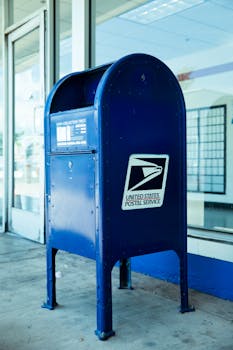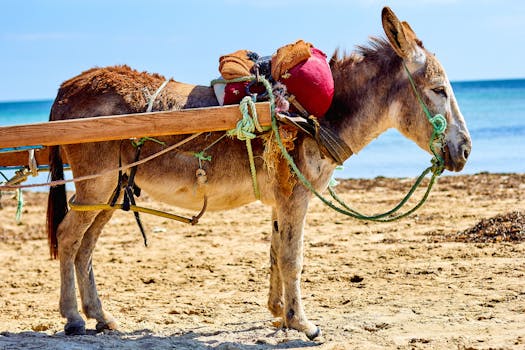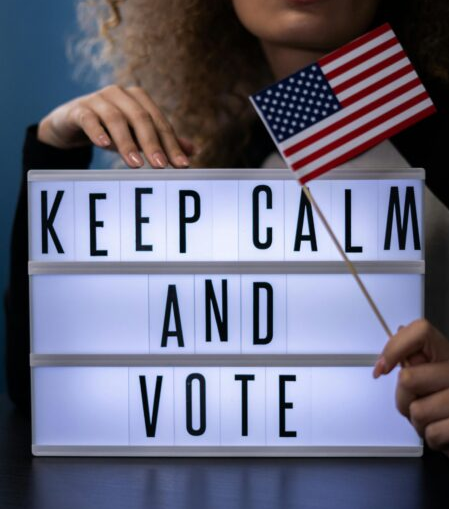The 2024 U.S. Presidential election is looking like it may be one of the closest contests in recent memory.
Are you invested in the outcome … but still unsure how to cast your vote?
Below I explain how to request your ballot and vote.
Why bother?
The fact is, many state elections are decided by a small number of votes. So I urge anyone who’s eligible to get out there and fulfill their civic duty! Plus, the outcome is likely to have a big impact on Mexico, so it’s well worth the effort.
Who is Eligible to Vote?
U.S. citizens living, working, or traveling in Mexico and unable to vote in person on Tuesday, November 5 are eligible to vote absentee in the Presidential election.
However, unlike your counterparts inside the U.S., you’ll need to act fast to secure your ballot and meet fast-approaching deadlines.
Below is an overview of how to request your voting ballot, complete it properly, and return it in time to ensure it gets counted.
How to Get Your Ballot
The easiest way to request your U.S. voting ballot is to hop on your computer or mobile and visit https://www.votefromabroad.org/.
This website guides you through the process to complete the Federal Post Card Application (FPCA) form and submit it to a local election office in the U.S. This form registers a person to vote and requests an absentee ballot on your behalf.
Even if you haven’t lived in the U.S. for a long time, it’s possible to vote in the last state you resided in. For others, it can be wherever you currently claim residency for tax purposes, since all U.S. expats must file federal taxes regardless of what country they now call home.
If you’re unsure about which state to claim residency, visit this page to learn more about state voting rules for non-residents.
Once you’ve submitted the FPCA form to a local election office, they will send you a blank absentee ballot to complete – most likely via email as it’s the most efficient, cost-effective option.
As a side note, the FPCA form requires absentee voters to choose a voter category. The choices (for civilians) are “I intend to return” or if “my intent to return is uncertain.” A few states also offer “I’ve never lived in the U.S.”
Your answer to this question has no bearing on your eligibility to vote. And since it’s wise to keep your options open – I suggest choosing “my intent to return is uncertain” if you’re unsure how to respond.
Completing Your Ballot
For the sake of voting integrity, it is not possible to cast your vote electronically. You must complete a physical ballot (printing out an electronic ballot if that’s what you received) according to the instructions your state provided.
When finished, affix the mailing label to an envelope (or handwrite it), seal it and sign it on the back.
If your state election office didn’t provide you with a postage-paid mailing label, there is a printable postage-paid label available on this page of FVAP’s website. All you need to do is add your state’s election office address from the voting instructions they sent you.
Signing your ballot envelope may or may not be required by your state’s election board, but is a wise move to do so — since this makes it more difficult for anyone to falsely claim that your ballot was completed by a third party (as a basis for throwing it out).
Returning Your Ballot
Each state sets its own deadlines for returning absentee ballots. They differ significantly from state to state, and also (sometimes) based on whether the ballot is returned by mail or in person.

The least flexible state is Rhode Island, which requires absentee ballots to arrive at least 3 weeks before election day, no matter how it’s returned! Overseas voters have a far easier time in New York, Montana, and Missouri – which allow absentee ballots to be dropped off up until one day before election day.
To find out your state’s deadlines, visit this page (which covers all 50 states):
https://www.vote.org/absentee-ballot-deadlines
U.S. embassies and consulates worldwide can accept completed and sealed ballots from U.S. citizens. They bundle and return them to the States via diplomatic pouch.
In Mexico, U.S. citizens are advised to drop off their completed ballots to the U.S. embassy or consulates no later than October 4th to ensure that they arrive in plenty of time to be counted. (no guarantees on Rhode Island!)
Below are U.S. consulate and embassy addresses in major Mexican cities pulled from Google Maps, as the State Department’s webpage for this information is currently broken:
Guadalajara: Av. Manuel Acuña 3410, Monraz, 44670 Guadalajara
Monterrey: Av. Eugenio Garza Sada 3680, Sin Nombre de Col 42, 64770 Monterrey
Puerto Vallarta: Paseo de los Cocoteros #85 Sur Paradise Plaza Interior Local L-7, Paseo de los Cocoteros 85-Sur, Zona Hotelera, 63732 Nuevo Vallarta
Merida: C. 60 338K, Alcalá Martín, 97050 Mérida
Nogales: Calle Alejandria S/N, Los Alamos, 84065 Heroica Nogales
Tijuana: Paseo de las Culturas S/N, Otay Mesa, Bosque de las Araucarias, 22425 Tijuana
Mexico City (Embassy): Av. P.º de la Reforma 305, Cuauhtémoc, 06500 Ciudad de México, CDMX
Ballot envelopes (if not using a postage-paid label) sent via U.S. embassies and consulates abroad only need to have sufficient U.S. postage to ensure they get successfully delivered once inside U.S. territory.
If you miss the government’s deadline for sending your ballot through a diplomatic mission, I suggest connecting with other expats for help returning your completed ballot.
From major Mexican cities and resort towns popular with expats, there always seems to be someone heading to the States willing to “mule” it for you. This avoids the need to rely on uncertain international mail delivery or costly premium couriers.

To locate expats who may be traveling back and forth over the next month, I suggest asking friends and/or posting to Facebook/WhatsApp groups in your local area.
This page is worth bookmarking as it also provides links on how to track your ballot once it’s been sent back. All but a handful of states now offer this capability (the exceptions are Mississippi, Missouri, Illinois & Wyoming).
Bottom line: U.S. states are obligated to count every absentee ballot if it is completed correctly and reaches local election officials by their absentee ballot deadline.
Where to Get Help If You Need It
For those whose voting skills have gotten a bit rusty, there are live voter help sessions with U.S. expats over Zoom in the coming weeks. To find one visit this page.
If those don’t work with your schedule, it’s also possible to request a 1:1 appointment.

